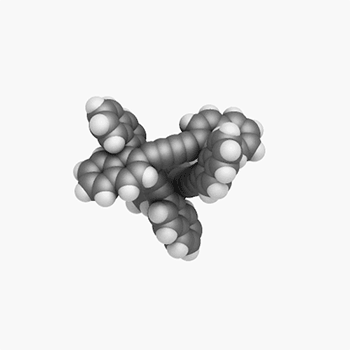So, we are trying to prove: (2rsinxcosx)^2+r^2(cos^2x-sin^2x)^2=r^2
We can ignore the right side of the equal sign. First, let's move the r outside the brackets or radicals.
r^2(2sinxcosx)^2+r^2(cos^2x-sin^2x)^2
r^2((2sinxcosx)^2+(cos^2x-sin^2x)^2)
Using the proof cos^2x-sin^2x=cos(2x).^1
r^2((2sinxcosx)^2+(cos(2x))^2)
r^2((2sinxcosx)^2+cos^2(2x))
Expand.
r^2(4sin^2xcos^2x+cos^2(2x))
Use the proof cos(2x)=2cos^2x-1
r^2(4sin^2xcos^2x+(2cos^2x-1)^2)
r^2(4sin^2xcos^2x+4cos^4x-4cos^2x+1)
Group cosx
r^2(4cos^2x(sin^2x+cos^2x-1)+1)
Use the proof sin^2x+cos^2x=1
r^2(4cos^2x(1-1)+1)
r^2(4cos^2x(0)+1)
r^2(1)
r^2
Comparing with the right side of the equal sign...
r^2=r^2.
And we're done!
Footnote 1: instead of substituting cos^2x-sin^2x=cos(2x) into cos(2x)=2cos^2x-1, you could go from cos^2x-sin^2x to 2cos^2x-1 without making the substitution.
cos^2x-sin^2x.
After rearranging the proof: 1=sin^2x+cos^2x -> -sin^2x=cos^2x-1 We can plug this in.
cos^2x-cos^2x-1=2cos^2x-1.



